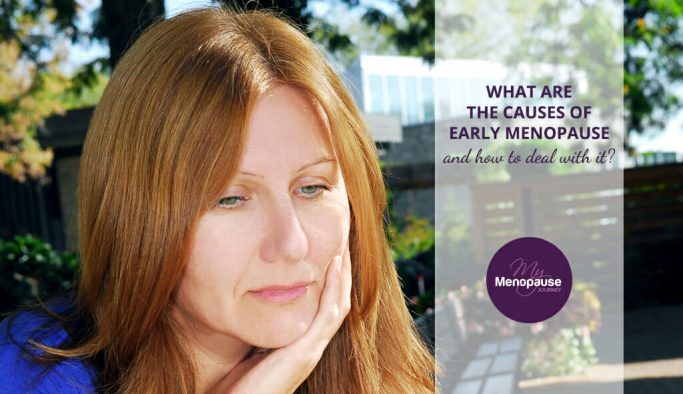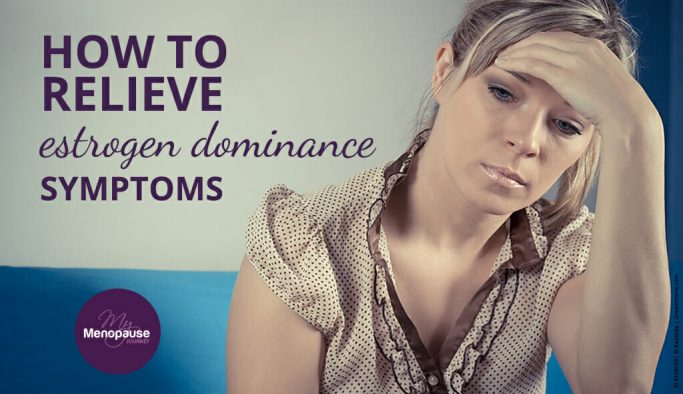There are some things that we don’t wish to wake up with, and puffy eyes are certainly one of them. Yup, it can be just a little beauty problem with an array of quick remedies. But the bigger problem comes in when we take it for granted and not realize that our eyes are actually telling us something more serious about our bodies!
My puffy eyes were related to eating too much licorice. My sister was a sufferer of puffy eyes too because she got problems with candida and leaky gut. Will tell you more about that later.
Oftentimes, it really works to simply connect the dots to find the root cause of your symptoms.
At this stage in life, we do get more sensitive to food. Too many also develop insulin resistance, and you’ll know why as you read through. Definitely we must pay more attention to what we eat because surprisingly, what we eat does not only affect us in a gradual run but sometimes, straightaway!


Puffy eyes have always had the reputation of being stubborn and not making our day. And what do we do? We oftentimes rush to the nearest mall to try all these countless brands of eye creams and serums! Sure, these beauty products can hide our “little stubborn friends.” But for how long can we really appease ourselves that these cover-ups are good enough, even if we are fully aware that they only work temporarily?
All the more, when we start aging, these puffy eyes get even more stubborn. Eye puffiness happens commonly as we age due to the skin under our eyes that loses elasticity, and fluids then tend to accumulate. Hormonal change is a huge factor too, and in all reality, there could also be a lot of other causes behind eye puffiness – some of them could be serious underlying conditions!
Now don’t blink and let your dearly beloved eyes work some magic for themselves to find out some long-lasting solutions towards reducing eye puffiness more effectively!
What are Puffy Eyes and What Causes Them?
Puffy eyes are an eye condition that happens when the area around our eyes becomes swollen.
Notice when we lack a little sleep, we develop eye bags? This is actually a form of minor eye puffiness because it only happens below the eyes. We can relieve this type of puffiness simply by getting enough sleep.
A certain degree of puffy eyes, however, can be expected for some people. A lot of us have inherited facial characteristics. When we cry, get allergies or experience stress and eye fatigue, it’s only natural that our eyes get swollen.
In midlife, eye puffiness happens quite normally. As we get older, we don’t produce enough collagen – a protein vital for skin elasticity. It may also be the protective fats from our eye sockets pushing forward, filling the skin below our eyes, and making them sag.
However, “persistent” eye puffiness that happens all around the eyes is a different story. So how will I know if my puffy eyes are not normal anymore?
While experts say puffy eyes is not a serious medical condition, there are signs that will help determine if something indeed needs more attention:
- long-lasting puffy eyes;
- pain, irritation, or severe swelling in/around your eyes that gives you difficulties in opening your eyes or have vision problems; and
- underlying medical conditions such as kidney failure, heart disease, thyroid disease, cancer, lymphoma and chronic sinusitis.
Discover other specific conditions that could cause persistent eye puffiness in our FACT BOX!
Why Do Puffy Eyes Occur in Menopause?
Sometimes, we women in midlife tend to overlook the diet and lifestyle we practice. I had encounters with puffy eyes and had no idea why it was happening to me. I already spent some bucks to see a doctor in hopes to have it treated, only to find out on my own that the only culprit was my all-time favorite licorice!
So never forget that what you eat can directly cause puffy eyes too! It could be the allergies that they can cause. Worse, due to the hormonal changes we are in, the food we eat can also easily lead us to gut problems, irritable bowel syndrome, or in some cases, candida – and puffy eyes being their common denominator. Without a doubt, we have to be mindful of our food choices as we age!
Accordingly, it is a universally-known idea that menopause and changing hormones are two inseparable things.
Estrogen dominance, which usually occurs during perimenopause, can produce puffy eyes as a symptom. When estrogen is high, it suppresses the proper functioning of our thyroid glands. With insufficient thyroid hormones, our body functioning slows down and one side effect is the retention of excess fluids – which could make the eyes puffy! When estrogen fluctuates on the other hand, the skin in our eyes will also start to lose its elasticity, because estrogen is no longer there to help in collagen production.
Low progesterone also happens during perimenopause. That means, it will affect our water balance, because progesterone regulates the production of our other hormone, aldosterone.
However, during postmenopause, we may have “persistent” eye dryness. This causes irritation and swelling under the eyes in a long-lasting way because most of our hormones fluctuate for quite some time before they finally settle.
Our immune system may aggravate the situation even more by releasing inflammatory cells in response to the irritation. With this, we experience more symptoms like redness and itching in the eyes.
Eventually, experiencing too much stress together with menopause may also contribute to puffy eyes. When we are stressed, our body releases too much cortisol. This hormone is known to retain a lot of fluids. In postmenopause, when we have low estrogen production, cortisol can also surge up and puffy eyes occur.
14 Natural Ways to Reduce Puffy Eyes!
Having puffy eyes is certainly not anyone’s favorite look so here are simple but helpful remedies to get rid of eye puffiness:
Avoid high-sodium foods: Stay away from processed and fast foods, because they are filled with sodium which increases fluid retention. Try to go all organic and natural – munch on veggies, nuts, seeds and fruits instead! To season meals, use Himalayan salt rather than the usual, processed table salt.
Eat collagen-rich foods. Foods that are rich in Vitamin C, Vitamin A and Omega 3 are known to aid in the creation of collagen. Some good sources include tuna, salmon, tomatoes, spinach, kale, carrots, sweet potatoes, berries, oysters and citrus fruits. You can check out Food Renegade for more collagen rich foods.
Drink more water. Gulp! Drinking 8 to 10 glasses of water a day may help balance salt levels in our body, which reduces swelling caused by water retention.
Log a good night’s sleep! Set a bedtime routine and stick to it. Get at least 7 hours of sleep. Be good to your eyes, let them rest too!
Prop some pillows. Sleep with your head slightly elevated to drain the congested fluids from your eyes naturally.
Having the head and neck elevated helps encourage lymphatic drainage and prevent puffiness.
Detoxify! Detox daily by doing simple things like walking, deep breathing, having a glass of green smoothie and eating a healthy salad. Fasting is also a healthy way to cleanse your body. Get rid of toxins from your body and decrease the risks of infection and inflammation that may trigger swollen eyelids.
Take Probiotics & Enzymes! “An unhealthy gut and overloaded digestive system will show in dull, tired-looking eyes, dark circles, eczema, inflamed spots and a puffy face,” says one of the UK’s finest nutritionists Vicki Edgson. With that, you would absolutely always include these two on your grocery list: Probiotics are widely known due to their gut-related antimicrobial effects. Insufficient production of enzymes in the body can also lead to reduced gut function and increased digestive complaints!
Do face yoga! Face yoga is a great way to tone, relax and smooth the muscles in our facial area. It’s simple and easy to follow too! Watch this video by Danielle Collins as she demonstrates how you can remove bags under eyes with some face yoga techniques [3:59]:
Move it! Exercise to drain the lymphatic fluids. Jump rope and rebounding are simple forms of exercise that help prevent swelling. You can also do yoga, Pilates and stretching – mild exercises that keep the lymph flowing nicely.
Relieve allergies. If you have year-round allergies, you need to know the root cause of your condition. Survey your home and list some things that might be triggering your allergy. Go and visit a doctor to know exactly what’s the problem.
Don’t throw your tea bags out; use them! It doesn’t really matter if it’s green or black; these tea bags can ease swollen and irritated eyes. They have anti-irritant and anti-inflammatory properties that can soothe swelling around your eyes. After teatime, place your tea bags in the fridge for about 30 minutes. Once they’re cold enough, lie down and place them over your eyelids. Leave them for about 10 to 15 minutes.
The ‘cucumber’ remedy! A lot of people have faith in this beauty remedy. So why not try it out for yourself too! Cucumbers are high in water content and can soothe and hydrate the skin. It doesn’t hurt to use cucumber to bring back the lost beauty on our faces!
Vitamin E + Water. When used in combination, vitamin E and water can reduce swelling around your eyes. Vitamin E is known to help with collagen production. To prepare, get a small bowl of chilled water, then add a few drops of vitamin E oil and mix well. Dip cotton pads into the mixture and place on your eyes for 20 minutes.
Lymphatic drainage massage. Our lymphatic system is responsible for draining excess fluids in the body. If you want to prevent swelling, you have to keep the lymph fluid flowing continuously – like rivers inside our vessels. Decrease puffy eyes and face with this technique. Watch Melinda Lee’s Sexy Over 50 massage to get rid of baggy eyes! [5:24]
Natural and organic eye creams which have chamomile, cucumber and arnica as their main ingredients to reduce inflammation and tighten the skin. Caffeine-containing eye creams are also known to be effective.
We know that it’s quite impossible to find the Fountain of Youth in a jar that will fit your purse, but you have to see which ones work best for your skin type.
While the remedies we have above can help relieve puffy eyes, a visit to your doctor can help you find out the root cause and get the right solution to ease your discomfort.
“What am I eating?”
Let this be your top question if you have puffy eyes.
Make a list, observe, and you might just spare yourself from all the expensive tests at the clinic, and the medication and treatments that go with it too! Sometimes, it all simply boils down to diet and lifestyle.
FACT BOX
Puffy eyes is medically known as “Periorbital Edema”.
Other underlying conditions associated with persistent eye puffiness are eye problems. Improper functioning of our tear glands, pink eye, sty and eye injuries may also lead to puffiness. Best examples are: (1) Periorbital cellulitis, or infection of the eyelids, and (2) Blepharochalasis, which causes baggy eyes.
Another possible cause is lifestyle, such as a salt-rich diet. Overconsumption of salty foods can increase sodium in our body, which results in fluid retention. Too much alcohol consumption could also be one since alcohol causes dehydration in our tissues and greatly lowers our diuretic hormone.
Dermatitis, Lupus, and Dermatomyositis are examples of skin problems that affect puffiness in the eyes.
Puffy eyes associated with menopause do not appear to have severe symptoms. But in some cases, eye puffiness could also mean something is wrong with your immune system. Please find out more through women’s health expert, Dr. Christiane Northrup, as she talks about Sjögren’s syndrome and how it’s associated with puffy eyes and menopause.
LIKE IT? PIN IT!


We would love to hear your thoughts so feel free to add your comments below
Let´s support each other. Use the share buttons in this article, so more women can get help and feel great!
References:
mayoclinic.org/diseases-conditions/bags-under-eyes/symptoms-causes/syc-20369927
draxe.com/health/how-to-get-rid-of-bags-under-eyes/
annmariegianni.com/10-natural-solutions-for-puffy-eyes/
mayoclinic.org/diseases-conditions/bags-under-eyes/symptoms-causes/syc-20369927
allaboutvision.com/cosmetic/puffy-eyes.htm
health.clevelandclinic.org/8-reasons-swollen-eye-eyelid/
dishaeye.org/blog/reasons-puffy-eyes/
integrativepro.com/Resources/Integrative-Blog/2016/Prebiotics-Probiotics-Enzymes
marieclaire.co.uk/life/health-fitness/gut-health-253621
healingholidays.com/blog/introducing-vicki-edgson
👉 What to Do Next
Don’t go just yet — especially if you’ve been feeling off and no one’s given you real answers.
Go to the START HERE page.
It’s where things begin to feel clearer. No more second-guessing, no more sorting through conflicting advice. Just calm, honest support for where you are right now.
And if you haven’t yet, download the FREE GUIDE.
It’s quick, clear, and made to help you feel better — without having to turn your whole life upside down.


Gita is the founder of My Menopause Journey. Since 2014, she has been supporting midlife women by sharing hard-earned learnings from her own experience. To advance her knowledge, Gita puts a lot of her time and effort into understanding the broad spectrum of women’s health. She immerses in extensive research about the physical, mental and emotional aspects of menopause. Gita believes in the life-changing power of healthy, holistic living — this is where she anchors her message to all women. Learn more about her marvelous mission in About us - My Menopause Journey.





